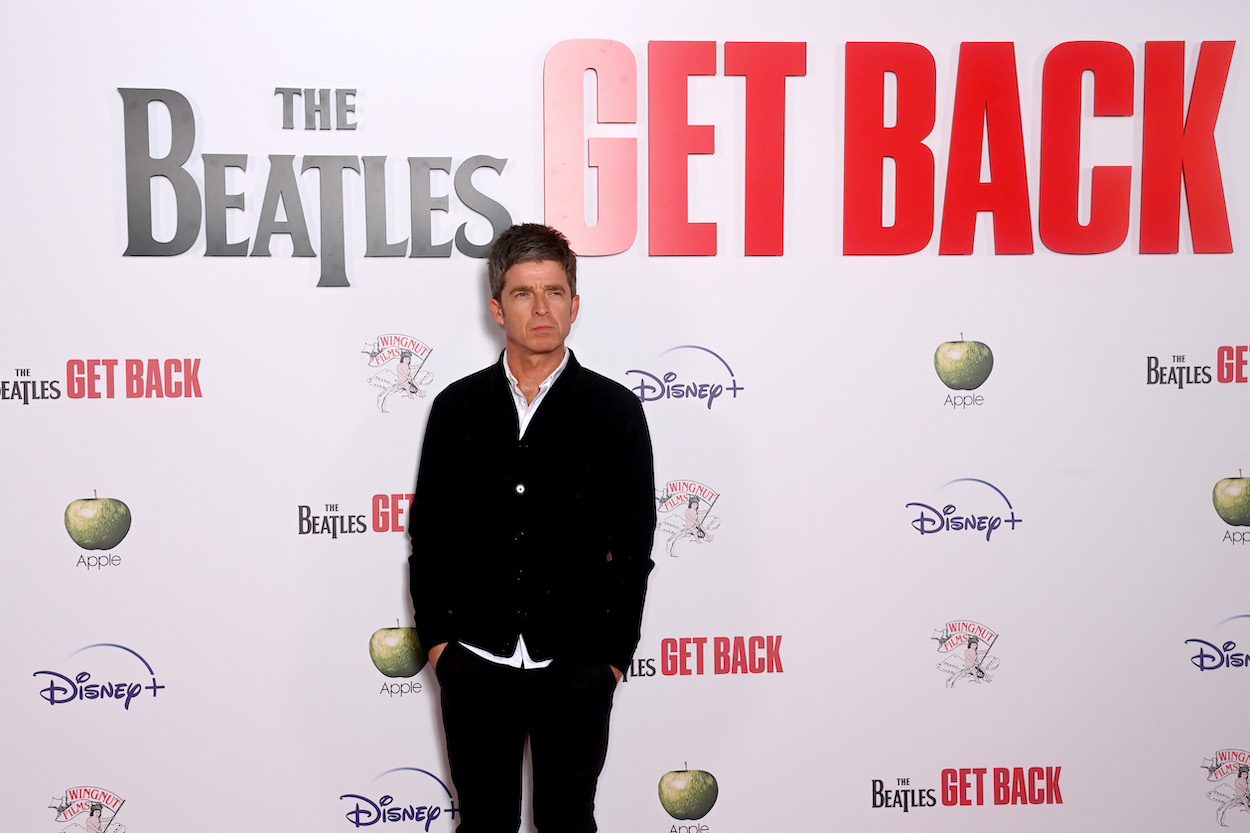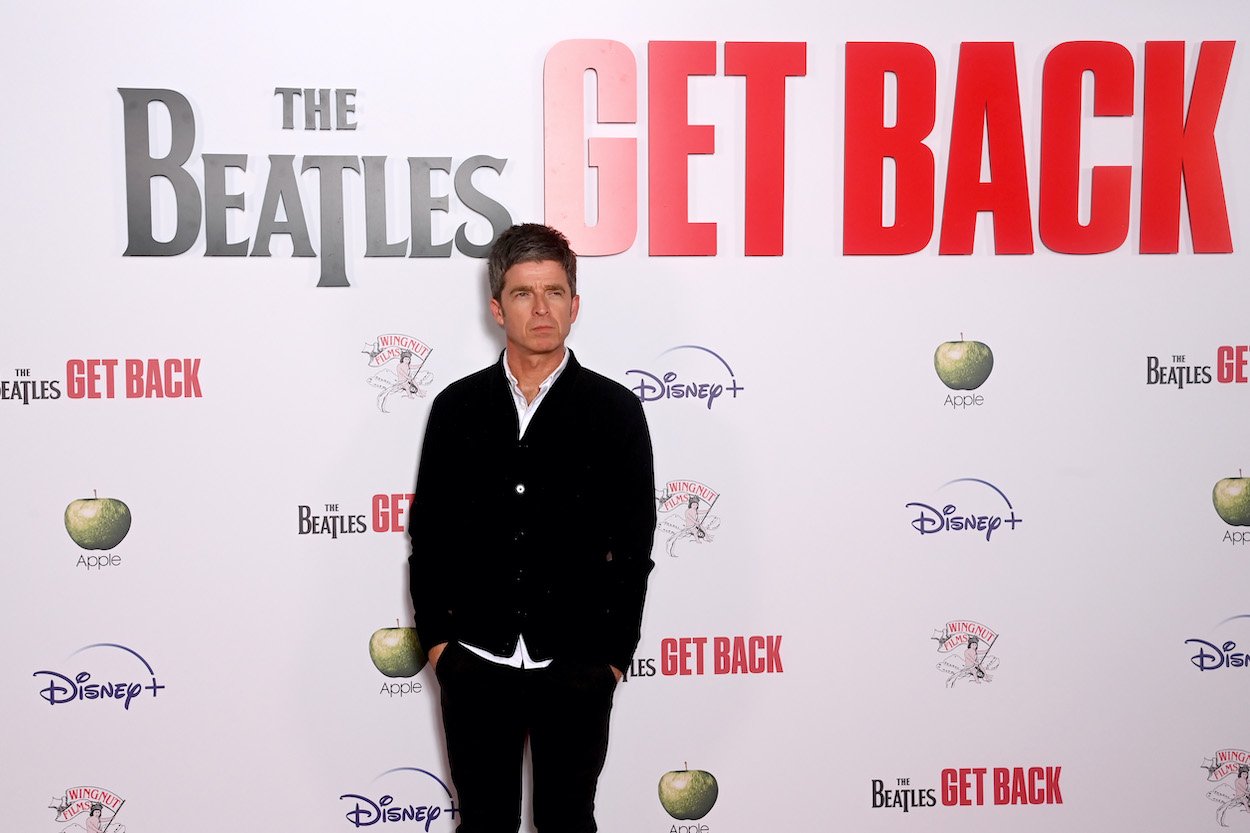
Oasis’ Noel Gallagher Has a Theory on Why The Beatles Pushed Music Forward, and We’re Totally Buying It
It’s not a big secret that The Beatles had a profound impact on Oasis guitarist Noel Gallagher. He lifted the riff from John Lennon’s “Imagine” for his band’s “Don’t Look Back in Anger,” after all. The Fab Four achieved more fame than Elvis Presley (and handled their stardom differently so they didn’t end up like him). Oasis came along roughly 25 years after the Liverpool quartet broke up, and the influence was clear. Gallagher looked back and found inspiration from The Beatles, and he has a theory about why the Fab Four looked forward that we’re totally buying.

Noel Gallagher’s theory about why The Beatles were forward-looking so much in their career
Almost all musicians find inspiration from past music. (You can’t be influenced by tunes that haven’t been recorded yet, can you?). American musicians, including Elvis, Chuck Berry, and Ray Charles, inspired The Beatles, at least early on. The Fab Four changed their sound dramatically, going from bubblegum pop to experimental psychedelia relatively quickly.
The Beatles soon left their major influences behind and were forward-looking later in their career. Gallagher has a theory as to why, and he revealed it in the Abbey Road Studios documentary If These Walls Could Sing:
“Subsequent generations tend to look back a bit more, whereas that generation came out of the horrors of the war. There was nothing to be nostalgic about. Rationing and the blitz? No thank you. So they were forward-looking, and God bless them because they gave us some of the best musical art of all time.”
Gallagher’s Beatles theory, in a nutshell, is that the austerity English citizens faced during World War Two wasn’t something to remember fondly. So, the Fab Four looked at the road ahead instead of behind during their career. We’re totally buying it, too.
We’re totally buying Gallagher’s Beatles theory
The Beatles found inspiration in past music, which makes sense, but they spent much of their career looking forward instead of back. John believed the Fab Four’s “Rain” used backmasking before anyone else, for instance.
Long before The Beatles formed, John, Paul McCartney, George Harrison, and Ringo Starr grew up in a Liverpool ravaged by World War Two. The Germans bombed the port city mercilessly in 1940 and 1941. According to the Imperial War Museums, thousands died in the May 1941 blitz. Ringo and John were both alive at the time (though probably too young to remember the chaos).
The challenging times lasted well after the war, too.
England rationed gas, clothes, and food during World War Two. English citizens had food rationed after the war, as well. Bread rationing began in 1946, according to the IWM. The government rationed meat long after the last bomb fell. It wasn’t until 1954, when John and Ringo were teenagers and Paul was on the cusp, that England stopped rationing.
The point is, English austerity lasted for years after World War Two, and all of The Beatles felt its effects.
Gallagher’s Beatles theory is that they looked forward during their career because they didn’t have much to be nostalgic about. It might sound simplistic, but it’s also plausible, and we’re totally buying it.
Oasis looked back to the Fab Four to find inspiration
Gallagher and Oasis shared in The Beatles’ history by recording at Abbey Road Studios, just as the Fab Four did throughout their career. He’s never been shy about the impact The Beatles had on his musical journey.
The guitarist isn’t alone in claiming Revolver as his favorite Beatles album. He once said “Setting Sun,” his collaboration with the Chemical Brothers, was based on the Revolver closer “Tomorrow Never Knows.” Gallagher said John’s “I Am the Walrus” proved to him that anything was possible in music.
Oasis looked back to the Fab Four for inspiration. Noel Gallagher’s Beatles theory that The Beatles looked forward during their career because they had nothing to be nostalgic about is one we’re totally buying.
For more on the entertainment world and exclusive interviews, subscribe to Showbiz Cheat Sheet’s YouTube channel.


